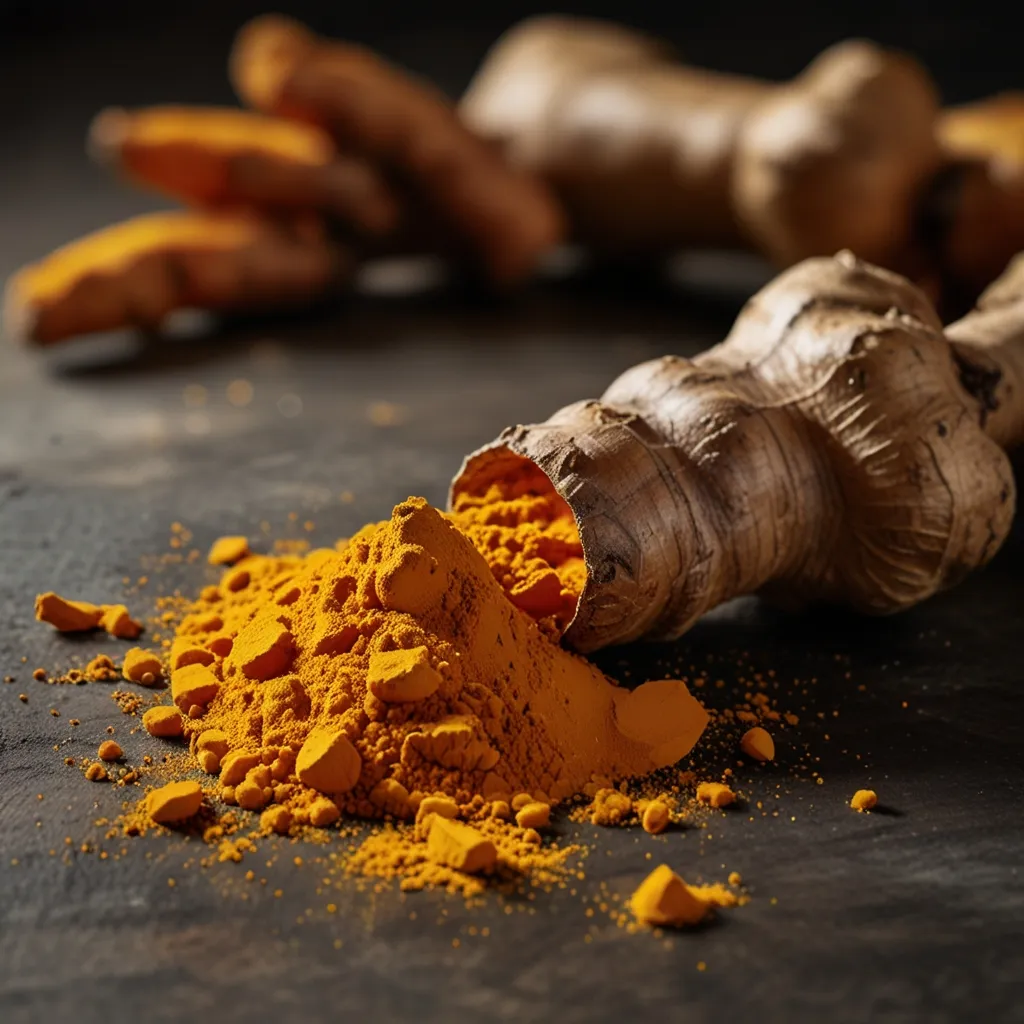Turmeric is that magical, bright yellow spice that’s been around for what seems like forever. It’s taken from the underground stems of the Curcuma longa plant and belongs to the ginger family. Not only does it jazz up any dish it touches, but it’s also packed with a ton of health benefits. The secret ingredient that makes turmeric so special is curcumin. This compound has been studied like crazy for its amazing anti-inflammatory and antioxidant powers.
Now, let’s take a quick trip down memory lane. Turmeric has been a big deal in South Asian culture and cuisine, especially in India. It’s been used in almost every form you could think of – ground spice, fresh root, and even dietary supplements. Beyond just cooking, turmeric has been the go-to for treating wounds due to its infection-fighting abilities, and mixed with milk, it’s believed to calm the mind. You’ll also find it in many Indian traditions, where turmeric is considered a symbol of prosperity and is often used to welcome new beginnings by applying a turmeric paste at the entrance of new homes.
Alright, let’s talk about why turmeric is more than just a spice that adds color to your curry. The list of health benefits linked to turmeric is long. It’s best known for its anti-inflammatory properties, which make it a superhero in managing conditions like arthritis and joint disorders. Curcumin, the star in turmeric, has been proven to help reduce joint pain for people with osteoarthritis. Plus, because of its antioxidant powers, it helps fight off those nasty free radicals. These free radicals are harmful molecules that can cause oxidative stress and contribute to diseases like cancer and heart disease.
Turmeric’s anti-inflammatory and antioxidant properties are where it shines the most. It’s a natural remedy for a variety of health issues. For instance, it can help manage inflammatory conditions like colitis, allergies, and infections. Its ability to protect cells by neutralizing free radicals makes it helpful in preventing degenerative eye conditions and metabolic syndrome. And there’s some hope that it could help with mood disorders, depression, and dementia, though more research is still needed on those fronts.
When it comes to digestive health, turmeric is like your stomach’s best friend. It’s been used for ages to help with digestive issues like gas and bloating. The antimicrobial properties in turmeric are excellent for fighting off infections and supporting the immune system. Traditional medicine practices believe that turmeric can strengthen the body’s overall energy and dispel gas. Plus, it’s handy for treating skin conditions like eczema and impeding the growth of harmful bacteria and viruses.
Turmeric doesn’t stop there. It’s also good for your heart. This spice can help lower cholesterol levels and prevent blood clots, reducing the risk of heart disease. Curcumin’s anticancer properties are worth noting too. It’s believed to inhibit the growth of cancer cells and lower the risk of various types of cancer.
Mental health and cognitive function are other areas where turmeric is gaining attention. The impact of curcumin in turmeric on symptoms of depression and anxiety is something researchers are excited about. It’s thought to enhance cognitive function and could play a role in preventing or slowing down the progression of Alzheimer’s disease, but we need more research to be sure.
The good news is it’s super easy to incorporate turmeric into your diet. It can add flavor to a variety of dishes, from savory curries to even sweet desserts. By adding turmeric to your meals, you’re giving your body a natural boost of antioxidants and anti-inflammatory compounds. And here’s a tip: combine turmeric with black pepper. It helps enhance the absorption of curcumin, making it even more effective.
Of course, as with anything, it’s important to be mindful. Consuming high doses of turmeric can lead to abdominal pain, nausea, and diarrhea. Always consult with a healthcare provider before starting any new supplement, especially if you have underlying health issues or are on medications. Turmeric can interact with blood thinners and certain chemotherapy agents and might lower blood sugar levels in people with diabetes.
In conclusion, turmeric isn’t just any old spice. It’s a powerhouse with a rich history and a range of health benefits that are too good to ignore. Whether you’re using it to cook, as a supplement, or applying it topically, turmeric offers a natural way to enhance your health and well-being. Its anti-inflammatory, antioxidant, and antimicrobial properties make it a versatile addition to your daily routine. So, go ahead and add a dash of turmeric to your life. You won’t regret it!






